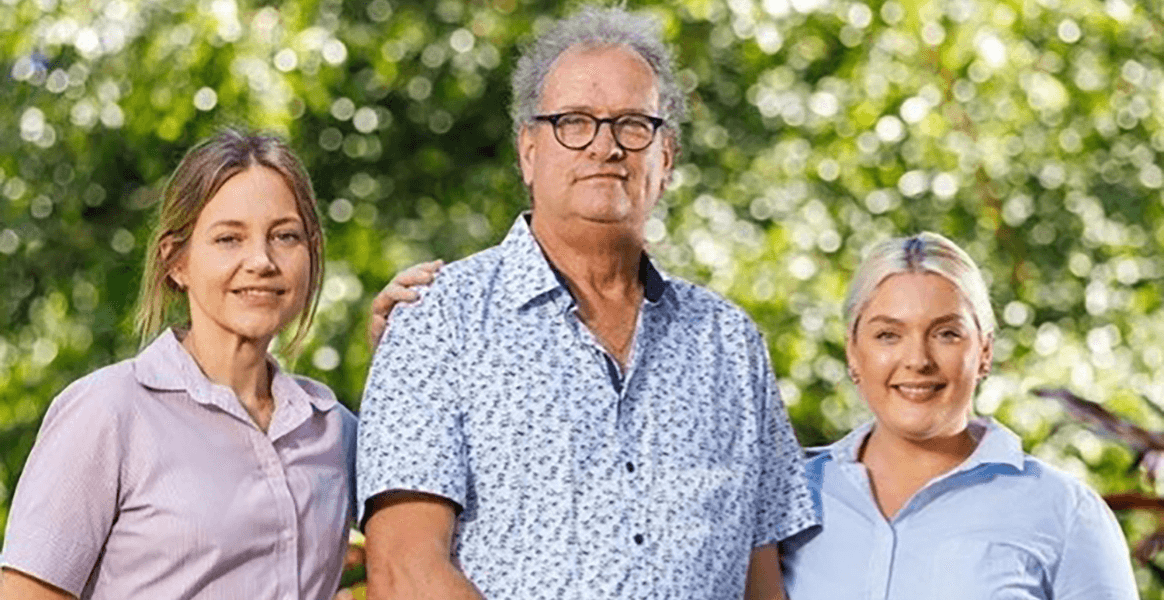Ross' Story

“Men need to hear that breast cancer can affect them too.”
These are the words of breast cancer patient, Ross Schumacher, who is fighting the same disease which tragically claimed his mother’s life 30 years ago.
Ross, 64, is one of more than 200 Australian men diagnosed with breast cancer every year.
He is determined to ensure this diagnosis is no longer one that catches men off-guard.
“Some people say there’s a stigma for men, but that’s not true,” Ross said.
“Everyone has been very empathetic to me and there’s no need to be secretive about this—it’s totally the opposite.
“Men need to look out for lumps and to get their skin checked every year.”
A freelance TV cameraman, Ross had just returned to Brisbane from filming an overseas golf tournament when he noticed something was wrong.
“I was just relaxing on the couch at home when I found a lump on my chest, just beside my right nipple,” he said.
“I’d had a few cysts before, but this seemed very different, very hard. Straight away my wife, Una, who is a nurse, said ‘You are seeing a GP tomorrow'.”
“My GP told me that the biopsy had shown breast cancer. I said, ‘So, male breast cancer is a thing?’ and she replied ‘Absolutely—one in 100 cases are male’.”
Ross’ breast cancer diagnosis follows a successful battle against prostate cancer five years ago. The eldest of his two sons battled testicular cancer as a teenager, while his youngest son also survived a childhood brain tumour.
“I was obviously surprised to find out I have breast cancer, but I’ve been exposed to cancer several times before,” he said.
“This is just another type of cancer, and it can happen to anyone, even though it’s rare for men.”
Mater breast cancer specialist, Dr Ben Lancashire, echoes Ross’ sentiments.
“Male breast cancer tends to be overlooked and forgotten and we need to change that,” Dr Lancashire said.
“There’s a lot of awareness of prostate and bowel cancer among men, but not breast cancer, so it can be a real shock for those patients.”
By purchasing Cars for Cancer tickets, you are helping to fuel vital cancer research, giving men like Ross hope of a brighter future. Thank you.


We would love to hear from you
We would love to know what you think about Mater Lotteries!
1800 067 066
All times displayed in your local timezone unless stated otherwise. Mater Foundation Ltd as trustee for Mater Foundation is registered as a charity with the Australian Charities and Not-for-profits Commission. ABN 96723184640. All prices are displayed in AUD.



